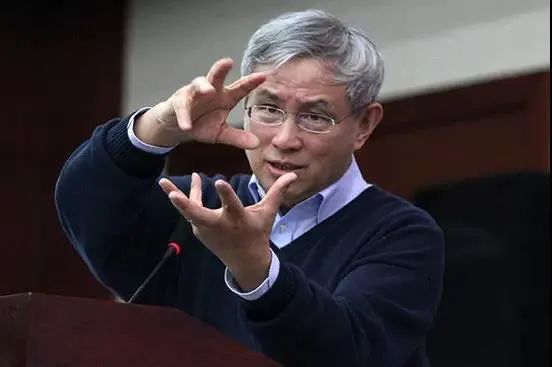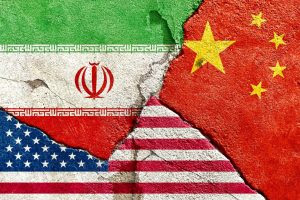By: Zhou Qiren
Editor’s note: Zhou Qiren is an economist at Peking University, and the head of its National School of Development. He has been an adviser on economic reform for many years.
Reform is inherently difficult. And now, change is even harder. But delaying reform is not the way out. In reality, reform not only has to win the race against corruption, but also against the expectations of the younger and younger mainstream of society.
——Zhou Qiren
To tell the truth, various economic systems around the world compete with each other above all in one respect, and that is their ability to correct errors. Is there any system that is error-free?
Capitalism is amazing. The Communist Manifesto said it had created a system for revolutionary economic achievements that surpassed all previous eras. Yet why do capitalist societies always have economic crises? Isn’t the reason that the system itself will in the end go wrong?
In the past, it was thought that such crises could be eliminated by establishing a planned economy. But in fact, whether in the Soviet Union or in China, economic planners also made mistakes. Otherwise, why would there have to be an “adjustment” every few years?
Experience has proven that mistakes are inevitable. The question is whether the ability to correct errors is strong or not. A highly centralized system has the advantage of being able to concentrate its efforts on big tasks, but a prerequisite is that the decisions are made correctly. If the decisions are wrong and made centrally, the mistakes will be large-scale, and it will be difficult to correct them.
“Reform” is nothing more than systematic correction of errors. And so there is a paradox here: the planning system is originally not strong enough in its error-correction capabilities, but the need to reform is only compelling enough once many problems have accumulated. And so by raising the banner of reform, will the error-correction ability of our system inevitably become stronger?
A new trend has also emerged in practice. Despite all the difficulties, reform has in the end made some progress, and has also yielded some economic achievements. There is a public view that our system as it stands is the most brilliant in the world, and now no longer needs to be changed.
Since reform is so difficult, is it better to not change at all? Is it okay to simply declare that China has established a new system and no longer needs reform?
After much deliberation, the answer turns out to be no. Because if you don’t change the system after only half of it has already been changed, big problems will emerge later. There are at least three such problems.
First, if we do not continue to promote reforms in some key areas, if we do not continue to promote reforms in the direction of the socialist market economy, and if we do not promote reforms that improve socialist democracy and the legal system, a series of related social conflicts will break out.
With respect to the current economic situation, its general current state is of descending from a great height. And as the old saying goes, “It’s easier to go up a mountain than it is to go down,” which means it’s easy for bad things to happen once one is going downhill. Many problems can be covered up during rapid growth, but once things start to decline, balancing these tensions becomes more difficult.
Second, younger people have become the principal segment of society. Their evaluation of systems, policies and their own environment have a new frame of reference that is different from that of the previous generation, and they also have higher expectations for an ideal society.
For example, for the generation that experienced the People’s Communes and the great famine from 1959 to 1961, and then the Cultural Revolution, looking at the changes since China’s reform and opening up causes them to feel that there has been huge progress.
However, for those born in the 1980s and 1990s, their frames of reference are inherently different. They live in a more open China and have a better understanding of the world. They think the world should be like this or that, and if it doesn’t meet the standards, they won’t be satisfied.
For the main portion of the current Chinese population, that is, the most active population in the industrial structure, the most active population in determining the consumption structure, and the most active population in the cultural sphere, what is their frame of reference and what are their presumed values? Are their standards for social justice and modern civilization higher than in the past, and are they less tolerant of the negative effects of inadequate reforms?
It should be noted that China’s economy is already the second largest in the world. Because of this, people have higher expectations for their country than in the past. We cannot always talk about what it was like before reform, let alone what it was like before the founding of New China, to always rely on “remembering the bitter and thinking of the sweet” to maintain people’s satisfaction.
If a country is to have hope, it must have higher expectations for its own society from one generation to the next. Therefore, reforms must also match the expectations of the younger population, the mainstream of society.
If changes are made too slowly and cannot keep up with the expectations the younger generation has for their society, problems will arise and disappointment may pervade that society. Then there will be no way to mobilize generations to face and ultimately to solve problems.
Third, many institutional variables are being changed too slowly and ultimately never reach their desired state, which stimulates more and more “illegal” behavior, many extra-legal phenomena.
For many things nowadays, the law may say one thing and the books may say another, but people actually do yet another thing. Many people do not live within the framework of the law, and rather live in a world outside it.
Seeing such things, people are used to criticizing mainland China for having laws yet not obeying them, an undesirable habit of not obeying the law. This problem does exist, but in some cases it is actually because many of our laws or regulations are irrational.
I can give a very small example. When a civil airliner lands, instructions are broadcast that ask everyone not to leave their mobile phones on. But if you look around, almost everyone keeps them on. But when taking a Cathay Pacific or Dragonair flight from Hong Kong, only when you land will someone announce that you can now turn on your mobile phone.
My question is, if there are no adverse consequences for turning on mobile phones after landing, why not just let everyone turn on their phones? This means that in some cases, it is not difficult to change laws or regulations, so it becomes easy to make it so that whatever laws exist, though smaller in number, must be obeyed.
Nowadays, many economic controls, laws and regulations and policies are simply difficult to implement, and everyone has to break the law to live a normal life.
When it comes to these phenomena, arbitrary “petty principles” prevail — this thing over here is not allowed to be touched, and that thing over there is not allowed to be changed. But it seems that one major principle has been forgotten, which is to allow the vast majority of people’s actions to be carried out within a legal framework.
In a society that is changing rapidly, reform must improve institutional capabilities, that is, it must solve the problems of justifiably illegal behavior while legalizing as much as possible currently illegal activities that do little harm to others and society. Otherwise, more and more people will want to start from scratch and tell the powers that be that no longer want to play the game as it stands. That would be the biggest failure of the system.
Reform is inherently difficult. And now, change is even harder. But delaying reform is not the way out. In reality, reform not only has to win the race against corruption and defeat, but also against the expectations of the younger and younger mainstream of society, and come up with the ability to bring a large number of activities from the extra-legal world into the system. In these three regards, if victory is not achieved, great difficulties will follow.
(Source: Zhongguancun Industrial Upgrading Research Institute)
This piece was translated from Yibao Chinese. If republished, please be sure to add the source and link https://www.yibao.net/2023/09/11/if-we-stop-refor…e-major-problems/before the text when reposting.
The views of the author do not necessarily represent those of this journal.























